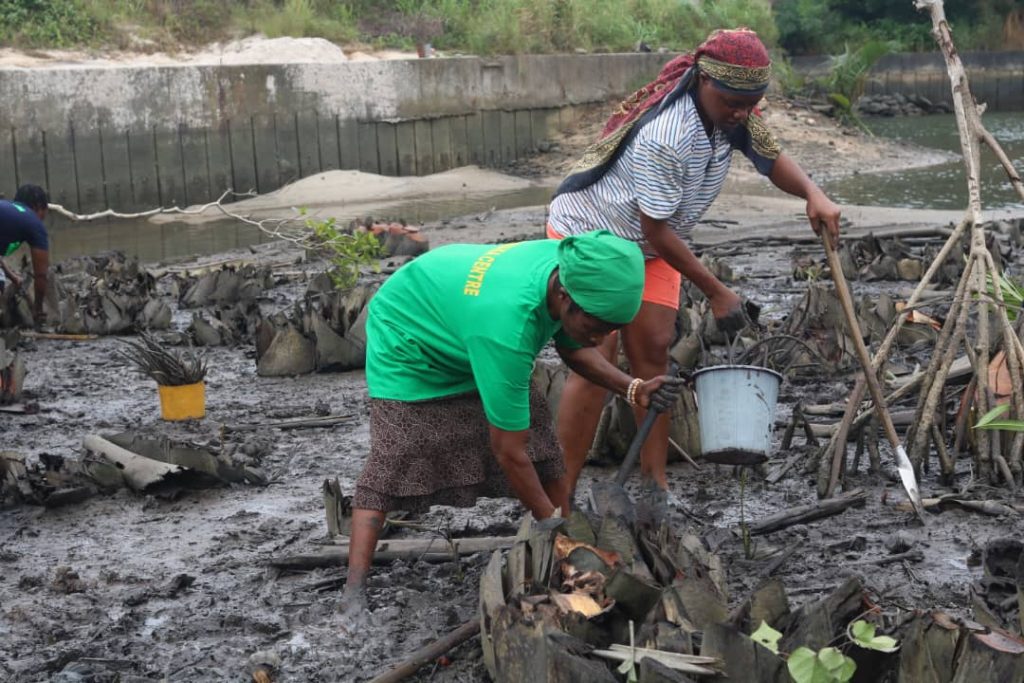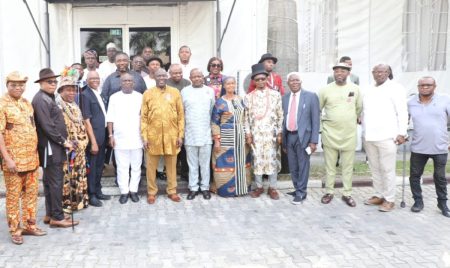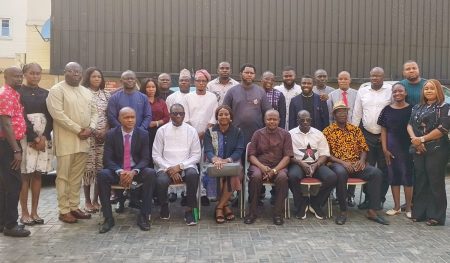
Mkpoikana Udoma
Port Harcourt — In a bid to restore lost biodiversity in the Niger Delta, an environmental advocacy group, Lokiaka Community Development Centre, has began planting mangroves to engender the regeneration of the ecosystem in the region.
The group, said it aims to plant 5 million mangrove trees across the oil rich region before 2030, adding that so far it had planted 3.6 million mangroves in hitherto devastated creeks.
Speaking in Teenama creek, Khana LGA of Rivers State on Wednesday, after 150,000 mangrove trees were planted in its degraded swamp, the Executive Director of Lokiaka Community Development Centre, Ms. Martha Agbani, said the Teenama project was the fourth in a row to be rehabilitated in the state.
Agbani noted that the organisation was not only rehabilitating the swamp, but also empowering women with requisite training to engender sustainability of the project.
She said, “We are based in Port Harcourt but we work across Nigeria wherever there is natural resources. Right now we are in Teenama Community in Khana Local Government Area of Rivers State where we are planning to restore their mangroves.
“This is the fourth forest in Ogoni that we have entered to work. We started from Yaataa community, we went to Bodo, we got to Bomu, now we are here.
“We work in any area that we have mangrove swamp forest, especially degraded ones as you can see here, nepal palm has overtaken this area. So we are here to restore their livelihoods, and also restore lost biodiversity of this area and today we intend to plant a minimum of 150,000 mangroves here.
She added, “We have earmarked one million mangroves for this very forest and we are doing this to key into what we have as our mandate for the United Nations Decade on Ecosystem Restoration. So Lokiaka will be restoring 5 million mangroves in Niger Delta areas.
“We have already done 2.6million mangroves, so if we do this one, it is going to be 3.6 million mangroves that we would be restoring in Ogoniland alone.”
Lokiaka disclosed that women were preferred in the project, because the project aimed not just to restore the ecosystem, but also to restore the culture of the people, their livelihoods and homes.
“We usually use the carrot stick approach. We train and handover because we need sustainability in whatever we are doing. We wouldn’t want a situation where we will leave here and return to meet nepal palm still here.
“But since the community don’t know about it and for our own project to be sustainable, we bring in the locals to be part of it. And if you see what is happening here is that there are more women, reason being that women are those that actually interact with this lands.
“They are those that pick periwinkle and that’s what they live on, but because of this Nipa palm challenge, they have lost that side of their livelihoods and that has also increased poverty, it has also increased violence against women at home and it has caused a lot of breakdown in family fabrics so what we are doing now is to restore, we are not just restoring the ecosystem, we are also restoring the culture, livelihoods and homes.
“So we as Lokiaka, we are women working for women to live a better life and part of our vision is to make sure that people should be involved in their own development. So we don’t come into an area and just decide that this is good for the people. We need to know what their challenges are and work with them. So we are just leading and they will follow and continue that’s why we are here. So we have brought in the locals because we got to know from other coastal communities,” she added.
Also speaking, a beneficiary of Lokiaka project, Mrs. Barisi Dumbor, said several women in the area had benefited from the training given by the organisation, adding that the training she acquired had helped to generate money to cater to the needs of her household.
“I thank Lokiaka so much for making me a woman as I’m today because I have achieved a lot from them. I have been trained to nurse mangroves and how to plant trees and I use to sell them to sustain my family.
“As we are doing this, I’m so happy and I’m praying that this NGO should move forward so that many women will benefit from their activities.”



